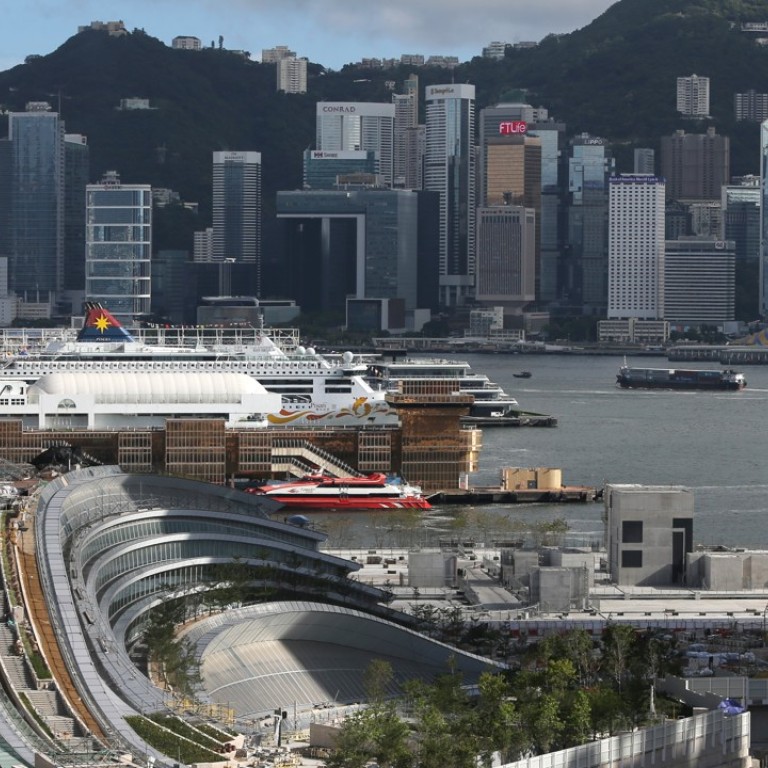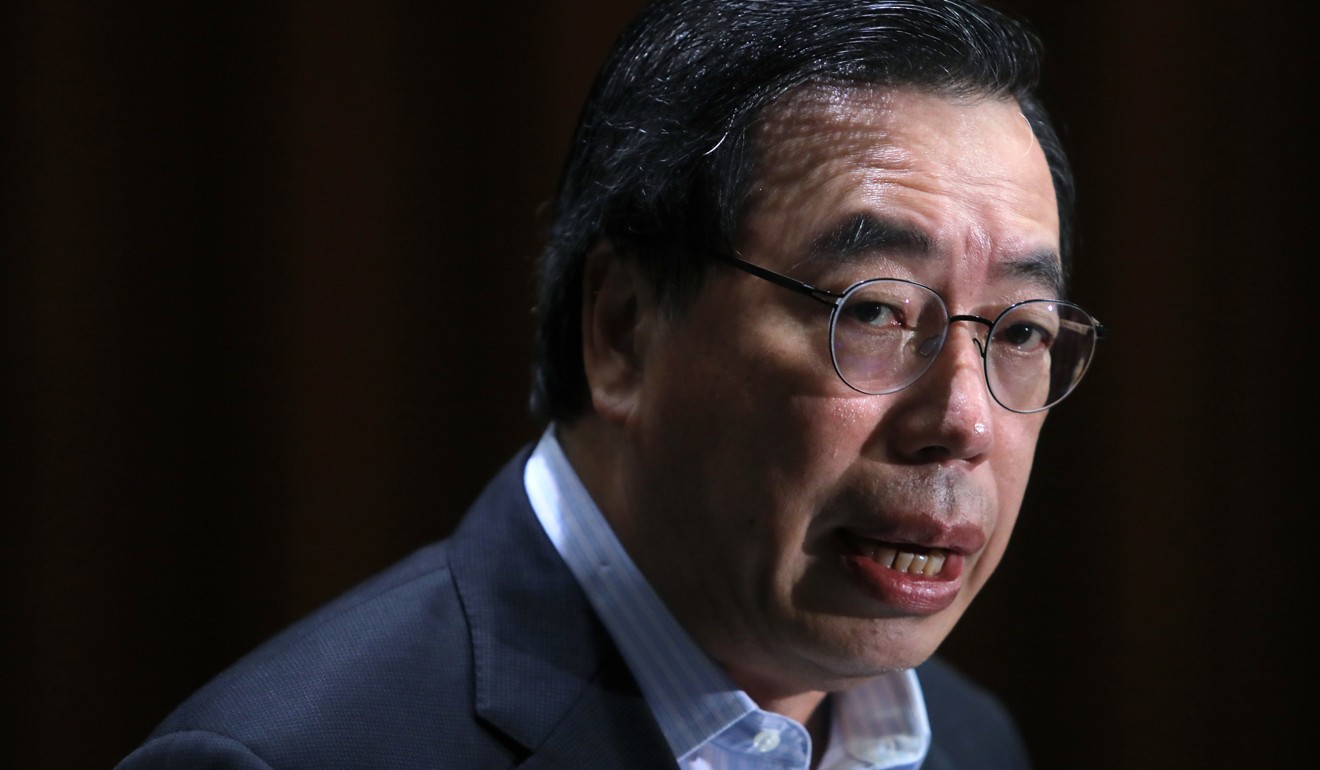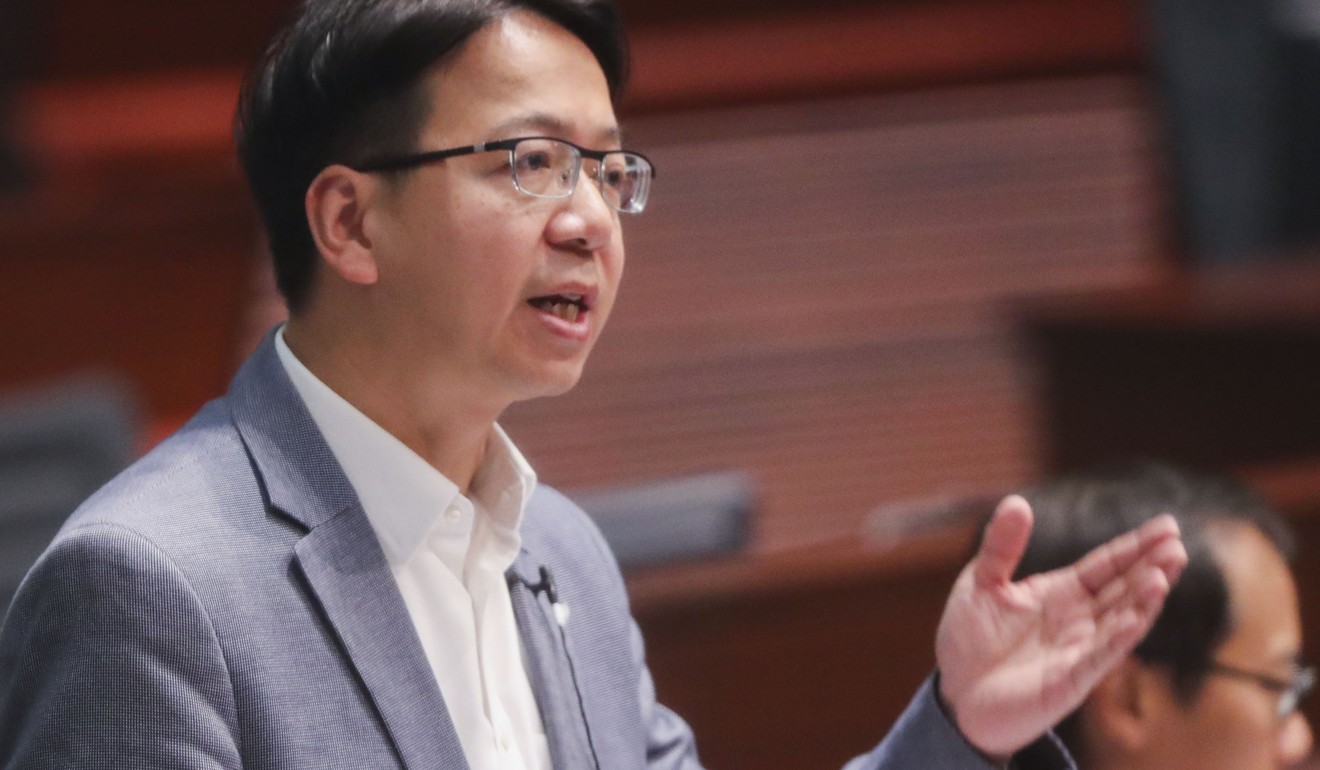
More than 50 changes proposed by Hong Kong’s pan-democrats for high-speed rail checkpoint debate thrown out by Legislative Council President Andrew Leung
Lawmakers condemn move and argue that rules of procedures have been tightened and the legislature’s purpose as a lawmaking body has been eroded
Only about a third of amendments to a controversial bill for the cross-border high-speed rail link will be tabled for debate on Wednesday in Hong Kong’s Legislative Council, according to its president.
On Monday, Andrew Leung Kwan-yuen said Legco had accepted for discussion 24 out of 75 changes raised by pan-democratic lawmakers. He added that the 51 that were thrown out were deemed to be beyond the scope of the bill or Legco’s rules of procedure.
The bill centres on a joint checkpoint arrangement where mainland laws would apply to a section of the West Kowloon terminus of the rail link.

Leung said 36 hours spanning two weeks were earmarked for the second reading of the bill – starting on Wednesday – before the September commissioning of the HK$84.4 billion (US$10.76 billion) express rail link connecting Hong Kong and Guangzhou via Shenzhen.
Two-in-one plane and train tickets eyed for China’s high-speed rail
“Legislators should respect the scope of these amendments, I don’t expect any major clashes,” Leung said. “The government or [Beijing’s liaison office in the city] have not given me any pressure.”
The government or [Beijing’s liaison office in the city] have not given me any pressure
The local legislation for the Guangzhou-Shenzhen-Hong Kong Express Rail Link (Co-location) Bill marks the third and final step in a three-step process, following an agreement with Guangdong provincial governor Ma Xingrui and endorsement by Beijing’s top legislative body, the National People’s Congress Standing Committee (NPCSC) last December.
Based on the timeline, the law would be in effect by mid-June if the bill is passed.
This is despite relentless opposition by pan-democrats who argue that the arrangement would contravene the Basic Law, Hong Kong’s mini-constitution, which states that national laws shall not apply in the city.

Lawmaker Charles Mok, convenor of the opposition camp, condemned Leung for setting “a bad precedent” on capping the debate at 36 hours.
He added: “Limiting the second and third reading of the bill to a time frame is unprecedented, which shows Leung is increasingly tightening the rules of procedure.”
Leung is increasingly tightening the rules of procedure
Lawmaker Raymond Chan Chi-chuen said there would also not be enough time for pro-establishment lawmakers to ask questions.
Civic Party’s Tanya Chan, who is also the convenor of the Co-location Concern Group, said her party raised about 20 amendments but only half of these were entertained. She said: “So whatever the NPCSC has stipulated, Legco needs to follow, which effectively erodes Legco’s function as a law making body.”
Secretary for Transport and Housing Frank Chan Fan urged lawmakers to take a fair and reconciliatory approach to discussions over the bill.
Transparency crucial as MTR irons out kinks of mainland rail link
“The project is an infrastructure which aims to offer convenience to the general public, a fact many do not dispute,” Chan said. “But there are differences in beliefs over legal issues, which will be digested in time.”
Another hurdle stands in the way of the rail link launch – an agreement would have to be signed between the Hong Kong government and MTR Corporation to allow the company to operate the services. Discussions between both sides are under way.
“I am sure the government will do everything it can to ensure that legislation on the project will be finished by June, or before the Legco summer recess,” an MTR source said. “It has to, because of the September launch.
“The next step would be signing the operating agreement, which is possibly due by August or before the first train starts in September,” the source added.

